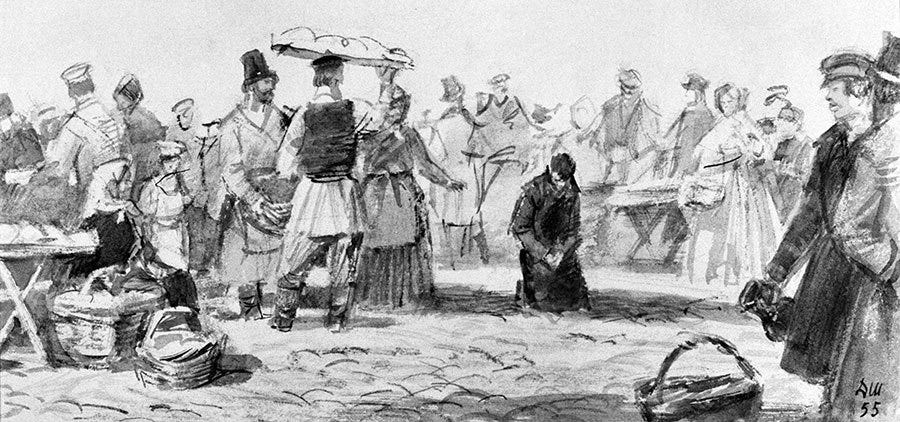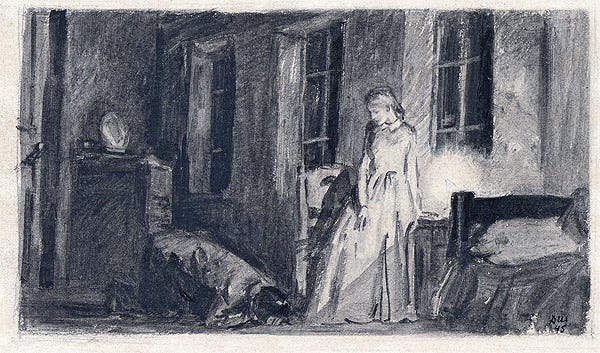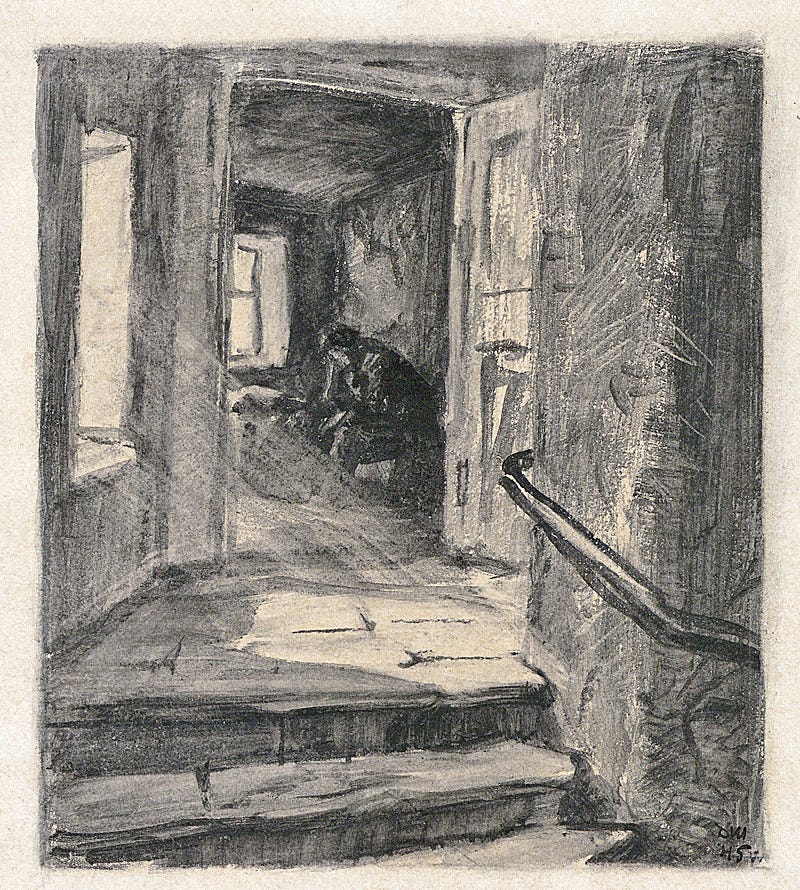A few secrets of how to read "Crime and Punishment"
by Fyodor Dostoevsky
Здравствуй, друг.
It so happened that just by now I’ve been discovering the beautiful depth of Dostoevsky world. Someone said that it’s not easy to comprehend it with a void of Gospel knowledge. That’s even harder in the current circumstances because as a modern school student isn’t interested in serious reading of any novel that is a part of school literature programm (and not a text can be sailed through). There must be something like a prepared ground to understand that humility isn’t a sign of weakness or love isn’t about feelings but compassion and empathy for seeing that another’s heart has no room for it (you know what I mean, having acknowledged with what Sonya Marmeladova did for Raskolnikov).
By the way, in Dostoevsky novels you won’t find any hint about love drama (as in the works of Turgenev or Shakespeare). His characters’ hearts are full of another sort of love: they are sedulous, attentive, patient. It’s important to be the second, for the author, because everyone wants to be the one and only (and today this idea is still relevant).
Сегодня я поделюсь [= will share] с тобой самыми простыми фактами, которые я не слышала будучи школьницей.

Sonya Marmeladova.
“Ты как Сонечка Мармеладова.” We use such an expression to point out that a person is unfortunated for not having another option: Sonya washed her only one dress every night to look neat and tidy.
However what I want you to pay attention to is the scene:
Sonia get up, put on her kerchief (платок) and her cape, and go out of the room and about nine o’clock she came back (вернулась). She walked straight up to Katerina Ivanovna and she laid (положила) thirty roubles on the table before her in silence.
In 1865, a prostitute of the best saloon in Petersburg could receive 50 kopeek (30 roubles is equal to 1500 kopeek), the mother of Raskolnikov received 150 roubles annually for widowhood. How could she get 30 roubles for the first time being in the redlight district? Dostoevsky cared about the meaning of the number. That was the price for which Judas betrayed Jesus.
Timing
In the letters and newspapers, we see that everyone remembered the 1865 summer as blistering hot (and one day it was at its peak of +31C) without any drop of rain.
“Crime and Punishment” starts with…
On an exceptionally hot evening early in July…
When the father of Sonya said to Raskolnikov that 6 days ago he received his money (and every civil servan received it on the first day of month), we have to keep in mind that their talk took place on July 7. The crime was commited on July 9. When Raskolnikov visits Sonya, he asks her to read a part of Gospel about The Raising of Lazarus. Moreover, by the end of the book, we find such a passage:
He was appallingly dressed: his clothes torn (одежда разорвана) and dirty, soaked with a night’s rain. His face was almost distorted from fatigue (от усталости), exposure, the inward conflict that had lasted for twenty-four hours. He had spent all the previous night alone, God knows where. But anyway he had reached a decision.
If you could count right and learn, too, that Katerina Ivanovna passed away on July 16 and etc… we find Raskolnikov in such despair on July 20. It is a special day for Orthodox Christian (and Dostoevsky loved Jesus Christ as none, and Lenin hated Dostoevsky for this reason amongst others) when they celebrate the memory of St. Elias. If there is thunderstorm on July 20, it means that St. Elias drives his chariot across the sky striking demons. Rain cleans the earth of evil.
If you read the novel, do you remember what happened to Raskolnikov? Let me know.
Рада, что ты прочитал(а) до конца!
If you want to support my project, you can do it here financially.
It means one cup of good herbal tea with a taste of sympathy to me.
P.S. It’s never late to read Dostoevsky. Here is a free copy in English.



